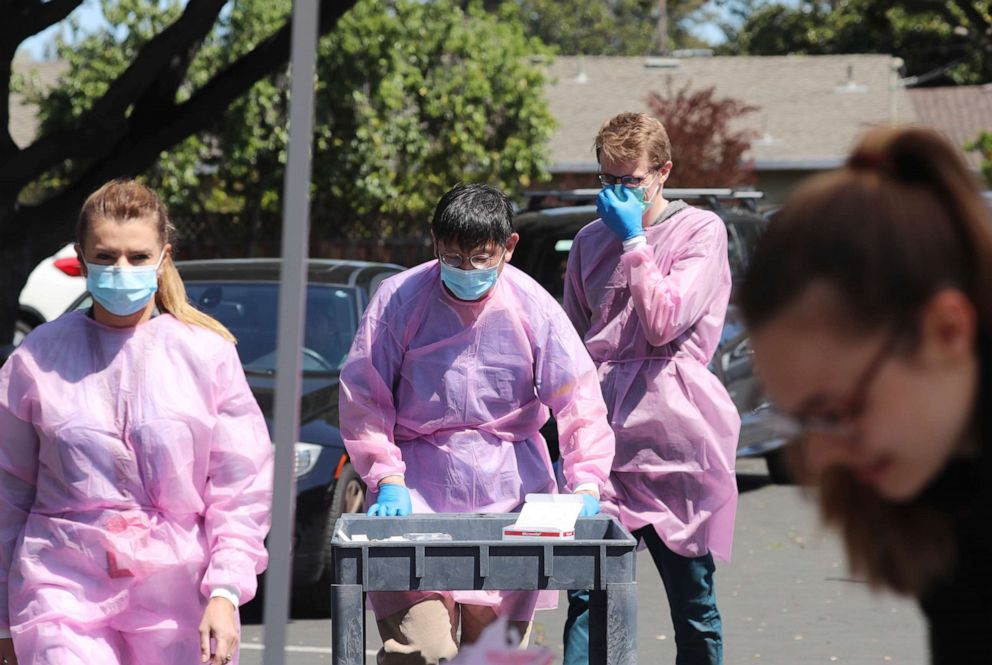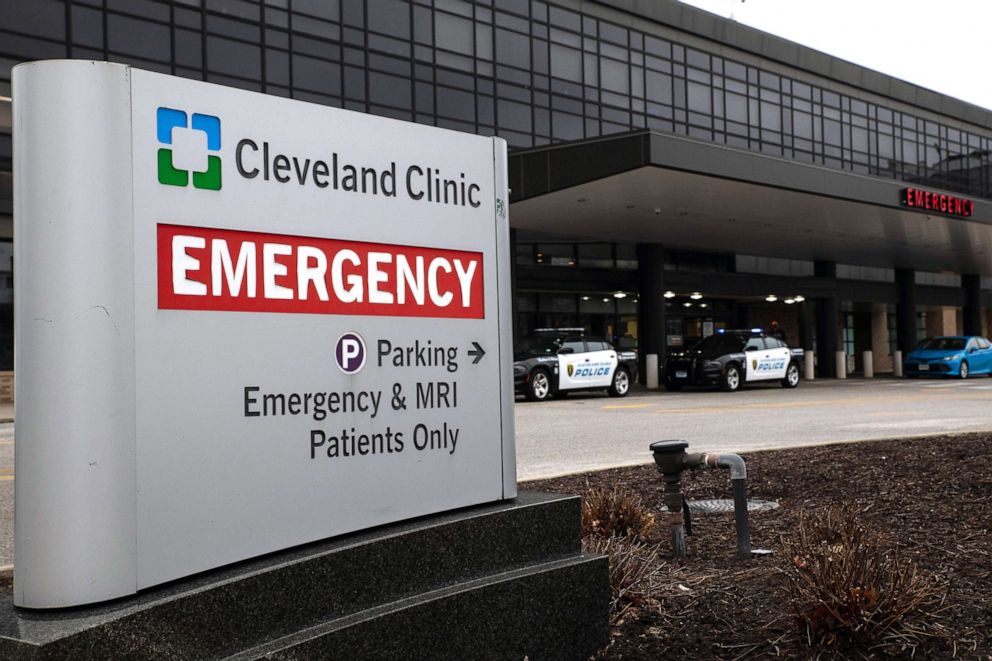Alternative COVID-19 therapies vary from hospital to hospital
Doctors' decisions often based on the unproven drugs their hospital offers.
Right now in the United States, there are more than 30 therapies being studied as possible COVID-19 treatments. Despite their not having been proven effective, some of these drugs are available for sick patients to try, either through a formal clinical study or a special government program called "compassionate use," effectively a Hail Mary for an unproven therapy.
With so little data available, how are physicians choosing which unproven drugs to give to their very sick patients? As it turns out, their decisions are mostly guided by which clinical trials or compassionate use programs are available at the hospital where they work.
Physicians interviewed by ABC News stressed that many COVID-19 patients will not receive one of these unproven therapies, and that’s O.K. In fact, doctors have learned a lot about how to treat patients with non-drug treatments, such as oxygen, fluids and other routine medical care.

“Therapeutics are not just medications. It’s not just about antiviral drugs and whether they work or not. It’s how we manage critical care, critical illness, how we manage patients with severe illness,” said Dr. Todd Ellerin, director of infectious diseases and vice chairman of the department of medicine at South Shore Health in South Weymouth, Mass.
When it comes to these highly-touted COVID-19 drugs, doctors still have no idea which unproven medications are likely to work.
On April 11, the Infectious Diseases Society of America released guidelines on the new drugs for patients hospitalized with COVID-19. The Society strongly discouraged physicians from giving unproven drugs outside the context of a rigorously designed clinical study, because they are potentially ineffective and could even be harmful.
Outside of clinical trials, doctors are able to apply for compassionate use to provide an investigational drug to a seriously sick patient, though doctors note this has become increasingly harder to do, possibly because the pharmaceutical companies making these drugs want to preserve limited supplies for clinical studies that will actually generate useful data.
“The key is that most of these drugs should be given in the context of a clinical trial. The guidelines are good information, but they didn’t inform us which drugs work,” said Dr. Ellerin.
Hospitals have varying resources and capabilities needed to run clinical trials evaluating the unproven COVID-19 drugs. Currently, for the most part, only large academic hospitals are equipped to perform the trials. Large academic institutions have created multidisciplinary teams of researchers in different fields, including specialists in lung injury, virology, infectious disease, critical care and ethics. These committees scrutinize the safety, science and design of the new medication trials.

Cleveland Clinic, for example, is currently running six different clinical trials in COVID-19 treatment after evaluating over 40 submissions. Stanford Hospital is currently running over 20 clinical trials, after reviewing over 80.
Doctors at these academic institutions can try to funnel their patients into a clinical trial. Typically, clinical trials have strict criteria, which can help guide which patients are eligible for which trial. Hydroxychloroquine, for instance, can lead to life-threatening heart rhythms, so physicians tend to avoid giving it to patients who already have problems with the electrical system of their heart. Finally, patients and families need to be consulted and give consent to participate.
What to know about Coronavirus:
- How it started and how to protect yourself: Coronavirus explained
- What to do if you have symptoms: Coronavirus symptoms
- Tracking the spread in the US and Worldwide: Coronavirus map
“We look at the health of the heart, kidney, liver, underlying health issues. It’s a long discussion with our patients about the risks and benefits, answering questions, and educating,” explained Dr. Neera Ahuja, Division Chief of Hospital Medicine at Stanford School of Medicine. “Since the drugs have no proven benefit, we say, ‘Here are our options that you can choose from.’”
Smaller hospitals, such as the one where Dr. Ellerin practices, may not have a wide range of clinical trial options. Dr. Ellerin’s hospital currently offers sicker patients the unproven COVID-19 medication hydroxychloroquine.
His hospital has been waiting for weeks to hear if they are approved for compassionate use for other COVID-19 candidate drugs, such as antivirals and convalescent plasma. Though his hospital is not testing the COVID drugs through a larger, formalized trial, it is meticulously storing data in its own repository to learn more about what works and what doesn’t.
If Dr. Ellerin and his colleagues suspect a patient may benefit from an unproven drug not offered at their hospital, they may transfer their patient to the nearby larger, academic hospitals in Boston. Cleveland Clinic and Stanford Hospital are also teaming up to support clinical trials in neighboring smaller hospitals.
Though it may seem like a patient would prefer to be at a hospital with more of these potentially promising drugs offered, experts urge people to remember that these drugs are still unproven—some with documented safety concerns.
“In the current environment with a lot of emotion, fear and poor outcomes, there’s a big pressure to abandon scientific principles and start pulling up drugs,” cautioned Dr. Culver. “We can’t rush or jump to conclusions. We have to use our best judgment and use the literature that’s available. And try to do our best for our patients, recognizing that a lot of the time, we’re working in the dark.”
As new information about drugs and other treatments surrounding COVID-19 emerges rapidly, experts work hard to adapt to the rapidly changing field.
“It has been a little bit of us paving our own path. Recognizing what people are seeing, talking to colleagues across the country,” said Dr. Ahuja. “And feeling comfortable telling patients, ‘I don’t know. We’re learning along with you.’”
Tiffany Kung, M.D., a resident physician at Presbyterian/St. Luke's Hospital in Denver, is a contributor to the ABC News Medical Unit.




